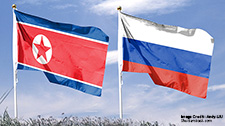The Dynamics of Democratized South Korean Foreign Policy in the Post-Cold War Era

Sangsoo Lee
In 1987, South Korea initiated a successful transition to democracy that has played a critical role in determining the government’s domestic and foreign policy. Paradoxically, the dynamics of the democratized political system appears to have created a polarization of Korean social values and attitudes. The division into conservative and progressive groups has heavily complicated the government’s foreign policy: it has become inconsistent, showing lack of continuity, and involving frequent changes to its policy towards neighbouring countries.
This chapter examines the major political factors that have influenced South Korea’s foreign and security policy towards neighbouring countries in the years following the transition to democracy. The discourse is centred around the following five points of view: first, it focuses on the policy makers’ ideal inclination; second, on the interaction between conservative and progressive groups; third, on the power relations between the ruling party and the opposition party; fourth, on the influence by public opinion; and last, on how neighbouring countries as external factors have had an impact on the divided South Korean foreign policy.
Related Publications
-
The Political Split at the Heart of Taiwan’s Struggle against Foreign Disinformation
Taiwan’s struggle against foreign disinformation and concerns about China’s impact on its 2024 election has received much international attention recently. This issue brief examines the domestic and international politics behind […]
-
ISDP Annual Report 2023
ISDP’s Annual Report for the year 2023. We look back on 2023, a year in which tensions and conflicts captured the strategic space in ISDP’s focus areas, making headlines around […]
-
What Comes Next for North Korea-Russia Relations?
North Korea and Russia have taken their relations to a new level after the leaders of the two countries held an in-person summit meeting on Wednesday. While Pyongyang and Moscow […]
-
Risk Reduction and Crisis Management on the Korean Peninsula
The situation on the Korean Peninsula is inherently intertwined with the growing instability of the East Asian security environment, where high tensions significantly increase the risk of unintended incidents and armed […]
-
Washington Declaration: Beyond Korea, What it Means for India?
In April 2023, South Korea and the United States released the Washington Declaration to reiterate and upgrade their treaty alliance. In outlining a joint nuclear deterrence strategy, the Declaration reaffirmed […]




